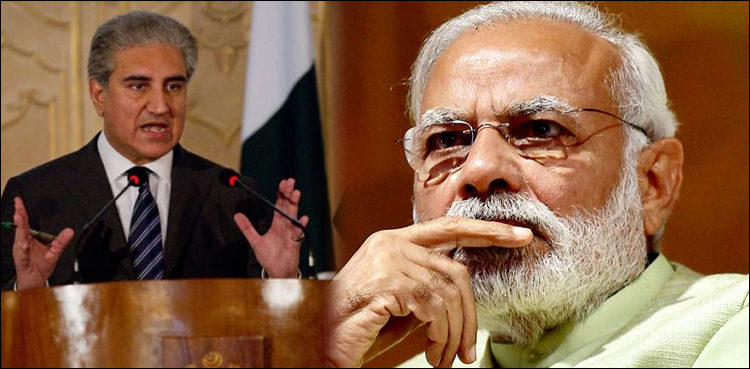A prosperous global diaspora, rising economic might, a powerful pro-India global lobby and most importantly a steel-willed government have cemented India’s position in a new world with multiple poles. On the other hand, Pakistan is a tattered nation, battling abject poverty and home-grown terrorism at the same time. At this point of time, Pakistan is facing acute economic stagnation and a possible blacklisting by FATF. The abrogation of Article 370 that gave special powers to the people of Jammu & Kashmir came as a cruel joke for the Pakistani establishment.
Kashmir is more than just a territorial issue for Pakistan, it is Naak ka sawaal (A matter of prestige) for them. Pakistani politicians have, since 1947, reached the Islamabad’s “Constitution Avenue”, riding on anti-India rhetoric and delusive pledges of gifting Kashmir to the people of Pakistan. Kashmir is also a game of strategies between India and Pakistan. While India has maintained that Kashmir is a bilateral issue, Pakistan has remained steadfast on internationalizing it. It claims that Kashmir is an international dispute and hence needs the intervention of world powers and the UN for the resolution of the issue.
But it seems that the Pakistani establishment has woken up to the harsh realities of life. The fact that they are an international pariah is not lost on them. That becomes amply clear from the statement of Shah Mahmood Qureshi, Pakistan’s Federal Minister for Foreign Affairs, during a press conference. He said “Giving vent to emotions is easy and raising objections is much easier. However, it is difficult to understand the issue and move forward. They are not waiting for you with garlands in their hands. Any members out of the P-5 nations can be a hurdle… Do not live in the fool paradise,”.
Pakistan is not just a tattered nation; it is also a lonely country. The international isolation of Pakistan, a pet project of PM Modi that was brushed aside as a fanciful idea by eminent liberal thinkers, is now a reality and that can be ascertained from some recent examples. World Powers and the UN have pigeon-holed Pakistan at times when it needed their support desperately.
When India Air Force flattened a Jaish-e-Mohammad camp in Balakot, Khyber Pakhtunkhwa, Pakistan, in retaliation to the dastardly Pulwama attack, the international community remained absolutely clammed up. Many countries came out in support of India and that list included countries like US and Israel.
The UN Security Council clearly named Jaish-e-Mohammed, the terrorist organization behind the Pulwama attack, in a condemnation statement released in condemnation. China, the supposed “all-weather ally of Pakistan” is a permanent member of the UNSC and it didn’t bat an eyelid.
The same phenomenon was repeated when Afghanistan, Bhutan and Bangladesh followed suit after India pulled out of the SAARC summit, scheduled to be held in Pakistan last year. Sri Lanka delivered the knock-out punch by deciding to give the summit a miss forcing Pakistan to call it off altogether.
In April this year, Pakistan was left supremely embarrassed when Russian President Vladimir Putin rejected Islamabad’s proposal of bilateral talks in the Belt and Road summit, which was held in Beijing. But that was not all, at least 37 heads of state and governments had attended the summit, out of which Imran Khan could only manage to hold meetings with Chinese Premier Xi Jinping, Prime Minister of Ethiopia Abiy Ahmed Ali and the President of Tajikistan Emomali Rahmon.
In Modi 2.0, the theme of isolating Pakistan is even more prominent. In a clear-cut snub to Pakistan, PM Modi invited BIMSTEC nations to his swearing in ceremony. India’s new Foreign Minister S Jaishankar went on to say – “India’s prime responsibility is to lift up its neighbors in the sense that our growth can be a lifting tide for our neighbors. We are the largest economy (in South Asia).”
“SAARC has certain problems and I think we know. Even if you were to put terrorism issue aside, there are connectivity issues, there are trade issues out there,” He added.
Pakistan now stands at the edge of the world, isolated, with virtually every country on the globe turning their backs towards it.
The over-exaggerated might of its military and regular missile launches keeps the jingoistic population of Pakistan amused and basic existential questions do not become a part of the mainstream narrative, but an international isolation has started to expose Pakistan not just to the world but to its own citizens. And it becomes very clear from a recent incident, where Pakistan’s Permanent Representative to the United Nations, Maleeha Lodhi had to leave from an event after a Pakistani man heckled and accused her of corruption, saying, “You are a thief and don’t deserve to represent Pakistan”.




























